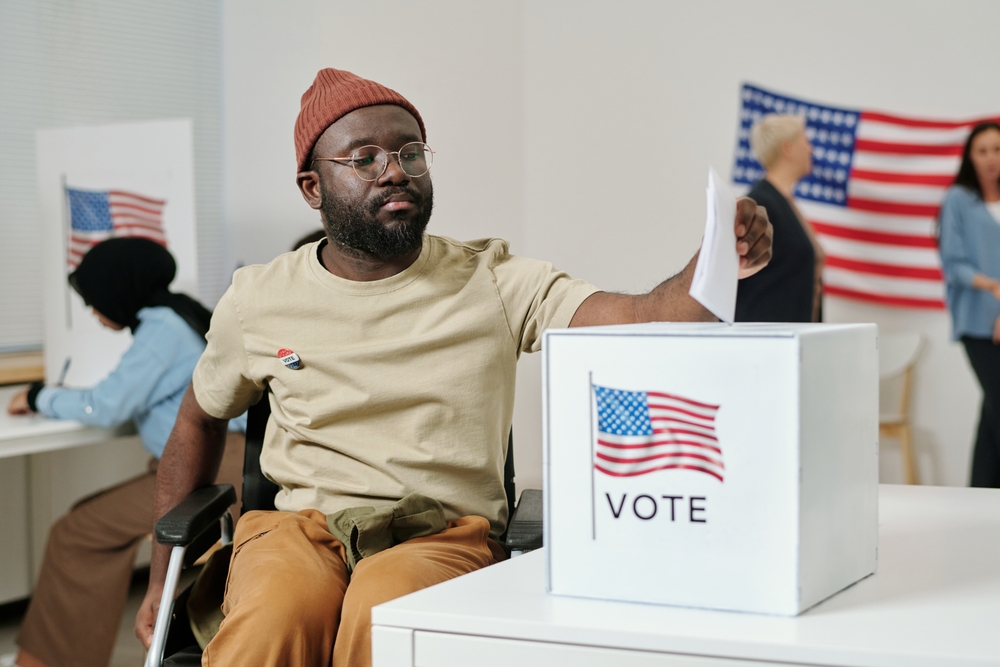Since 2018, The Arc of Massachusetts has been coordinating our voter rights campaign #TheArcVotes in order to share resources and stories about the importance of the disability vote. In each successive iteration of our non-partisan advocacy, the stakes associated with each election’s results for the disability community have only risen in our increasingly divided country.
According to the American Association of People with Disabilities in 2023, there are over 61 million people with disabilities in the country, and over 38 million of them are eligible to vote. Despite the size of this population, which makes it the largest minority voting bloc in America, voters with disabilities continue to vote at a lower rate than people without disabilities, largely due to barriers in place, such as inaccessible polling places, limitations on early or mail-in voting or drop-off boxes, or a lack of plain language in ballots.
Yet even though these difficulties continue, there have been encouraging signs about the levels of participation from the disability community, including their families and caregivers, in recent election years. According to the United States Election Assistance Commission, the turnout among voters with disabilities increased 5.9% in the 2020 election versus the 2016 election, and it also increased by 1.6% in the 2022 midterm election year versus the 2018 midterm election year. In addition, as the implementation of voting by mail has increased in many states, the voting process has been further democratized in those states, resulting in even higher participation among disabled voters.
By voting in all races down the ballot, whether in a major election year or a midterm year, voters are able to have a say in choosing the candidates they believe will have their best interests in mind if elected. For the disability community, this can mean many different things, ranging from whether programs and services receive adequate funding, to whether the needs of people with disabilities are considered in health crises, to whether inclusive and equitable policies are advanced locally, statewide, and federally.
People with intellectual and developmental disabilities (IDD) and autism have the right to vote just like anyone else. In addition, individuals under guardianship are also allowed to vote, unless a guardianship agreement specifically prohibits this. Families can review their guardianship agreements to determine whether voting is prohibited.
As a nonprofit organization, The Arc of Massachusetts must remain non-partisan, but we will always be loud and clear in our communications about the issues of importance to our community that are at stake in every election year.
Stay up to date with our voter rights work at thearcofmass.org/voting – and make sure to vote, in the state primary on September 3 and the general election on November 5. The disability community is counting on you!




